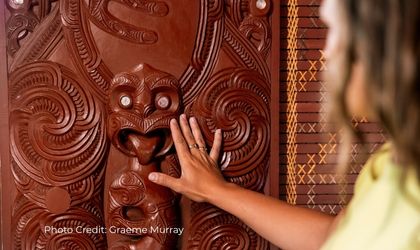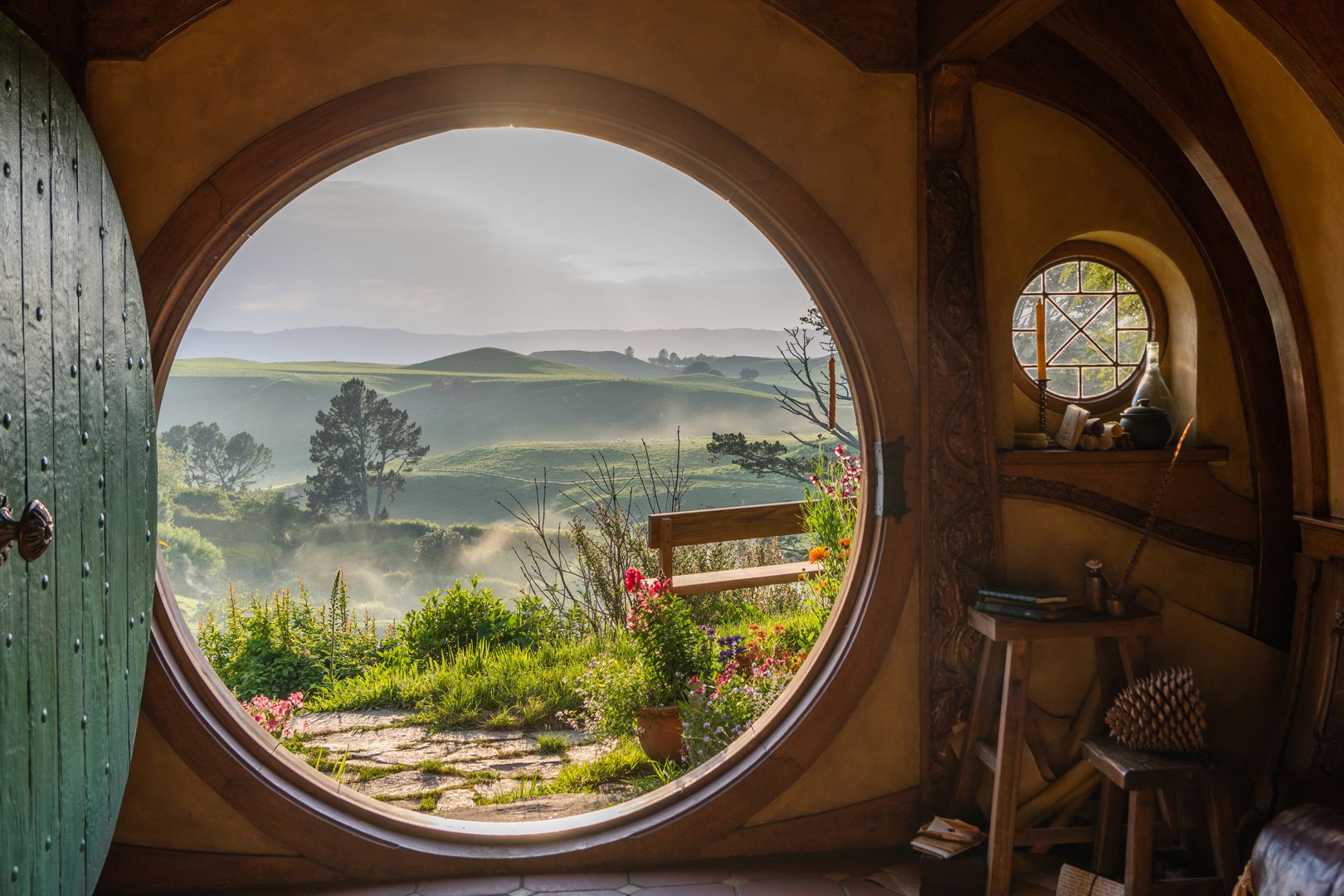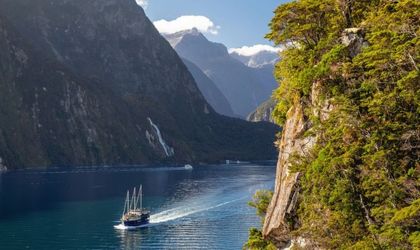Culture
Māori are the tangata whenua, the indigenous people, of New Zealand. They came here more than 1000 years ago from the Polynesian homeland of Hawaiki. Today Māori make up 18% of our population and their history, language and traditions are central to New Zealand’s identity.
Population
Around 5.2 million people live in our country, which is roughly the size of Great Britain or two thirds of California. The majority of New Zealand’s population live in the upper North Island, with around 1.2 million of the population currently living in the South Island. New Zealand has a diverse ethnic mix, with a majority of the population being European/Pākehā (mainly of British descent), with Māori making up 18%. The national capital of New Zealand is Wellington.
Entry Visas for New Zealand
To enter New Zealand, a New Zealand Electronic Travel Authority (NZeTA), International Visitor Levy (IVL) and a New Zealand Traveller Declaration are required. At least 72 hours prior to travel, complete the NZeTA, where you will also pay the IVL.
Within 24 hours of your flight to New Zealand, complete the New Zealand Traveller Declaration. The Traveller Declaration is free and takes approximately 10 minutes to complete. A declaration is required for each traveller, including children and infants. Please note that the NZeTA and IVL are not required for New Zealand and Australian passport holders.
Visitors bringing in a quantity of medication are advised to have a doctor’s certificate to avoid possible problems with Customs. Doctor’s prescriptions are needed to obtain certain drugs in New Zealand.
Peak Travel Periods
New Zealand can be very busy during the festive season and over special event periods, especially in popular destinations such as Queenstown. To avoid disappointment, please ensure you book well in advance if you wish to travel over these periods.
Language & Foreign Speaking Guides
English is the major language of New Zealand with Te Reo Māori as our second language. We have access to Spanish, Portuguese, German, Italian and French-speaking drivers and guides.
Banking & Money Access
Major banks are open Monday to Friday (except public holidays), 9:30 am-4:30 pm, with Money/Foreign Exchange booths open 7 days a week in the larger city centres or tourist areas. Automatic teller machines (ATMs) operate on a PIN number system. Cash can be withdrawn 24 hours a day by credit card, as long as you have a pin setup on your card. Use of EFTPOS (Electronic Funds Transfer at Point of Sale) is very common. All international credit cards (VISA, MasterCard, American Express) are accepted. Travellers’ Cheques may be changed at banks, hotels, Money/Foreign Exchange booths and large stores in the main cities and tourist areas.
Goods & Services Tax (GST)
Goods and services are taxed at 15%. This tax is usually included in the advertised price. If the price does not state ‘Excludes GST’, the price includes GST.
Public Holiday Surcharges
During public and bank holidays, many restaurants and cafés may add a 10 to 20% surcharge on top of your total bill. This does not apply to pre-booked meals or services organised by us.
Tipping Guidelines
In New Zealand tipping is generally not customary and is only exercised as a genuine thank you for receiving great service. There is no obligation to tip, although the practice is common with the restaurant and tourism transport industries. Coach drivers, Guides, Driver/Guides, wait staff and porters do receive tips on a regular basis from both locals and overseas guests for good service.
Electricity Supply
New Zealand’s AC electricity supply operates at 230/240 volts, 50 hertz. Special plugs to convert your appliances to the New Zealand plug pin system (type I) can be easily purchased.
Time Difference & Daylight Savings
New Zealand is 12 hours ahead of GMT (Greenwich Mean Time) during months April to September and 13 hours ahead of GMT during the daylight savings period which is typically from late September through too early April.
Helpful Links & Event Calendars
Check the Tourism New Zealand events calendar to assist you and your clients with planning their vacation to New Zealand.
New Zealand Domestic Flights
Air New Zealand have strict checked luggage policies as well as the weight and size of carry-on luggage. To avoid problems, please ensure each piece of check-in luggage weighs less than 23kgs or 50lbs. For carry-on luggage, only a very small suitcase or soft bag is recommended at a maximum weight of 7kgs/15lbs. Laptop bags, camera bags or handbags are allowed in addition to carry-on luggage.
Travel Documents
Clients are provided with comprehensive documentation on arrival in New Zealand. Along with a detailed day-by-day itinerary, we include destination guides, a New Zealand map and brochures for suggested sightseeing. Contact details and supplier confirmation numbers are also included on the itinerary.
Travel Insurance & Safety
We highly recommend that all clients have comprehensive travel insurance. New Zealand is one of the safest holiday destinations in the world. However, you are advised to observe the same precautions with your personal safety and possessions as you would in any other country or at home.
New Zealand is a country without snakes or dangerous wild animals, making it safe for visitors to enjoy outdoor activities. New Zealand’s public and private medical/hospital facilities provide a high standard of treatment.
Climate
New Zealand has mild temperatures, moderately high rainfall, and many hours of sunshine throughout most of the country. New Zealand’s climate is dominated by two main geographical features; the mountains and the sea.
Whilst New Zealand’s far north enjoys subtropical weather during summer, inland alpine areas of the South Island drop below zero ºC in winter, but as most of the country lies close to the coast, New Zealand predominately has mild temperatures, moderate rainfall and abundant sunshine.
Because New Zealand lies in the Southern Hemisphere, the average temperature decreases as you travel south. The warmest months are December, January and February, and the coldest June, July, and August. For the current forecast throughout New Zealand, go to Met Service.
![]() To convert the temperatures in Celsius above to Fahrenheit, (C x 1.8) + 32 = °F, where °C is the temperature in degrees Celsius and °F is the temperature in degrees Fahrenheit.
To convert the temperatures in Celsius above to Fahrenheit, (C x 1.8) + 32 = °F, where °C is the temperature in degrees Celsius and °F is the temperature in degrees Fahrenheit.
Driving in New Zealand
In New Zealand we drive on the left in right hand drive vehicles. The diversity of New Zealand’s landscape makes it a popular and excellent self-driving destination, but New Zealand roads are probably different to what you are used to at home. Distances may seem short on paper, but our roads may be narrower, cover mountain passes, varied terrain and vary from motorways to rural unsealed gravel roads.
To ensure driver safety, we will plan your itinerary with comfortably achievable driving days based on you being an accomplished driver. If you are a less confident driver, not familiar with driving on the left or not accustomed to open single carriageway (with no barrier between directional traffic), then we would recommend alternative means of transportation.
You must have a current overseas driver licence in English, or international driving permit if your licence is not in English. We want you to have a great trip and arrive safely at your destination and recommend you study the New Zealand road rules before you depart and watch the Air New Zealand tutorial enroute.
www.drivesafe.org.nz is an excellent website to review should you be planning a New Zealand self-driving holiday.
National Parks & Marine Reserves
The New Zealand Department of Conservation (DOC) administer New Zealand’s many national parks, forest areas, reserves and conservancies which make up around 30 percent of New Zealand’s total land mass. These are often the best places to observe our native flora and fauna. Our 13 national parks contain an incredible variety of unspoiled landscape and vegetation. These parks provide an opportunity for a wide variety of outdoor activities.


